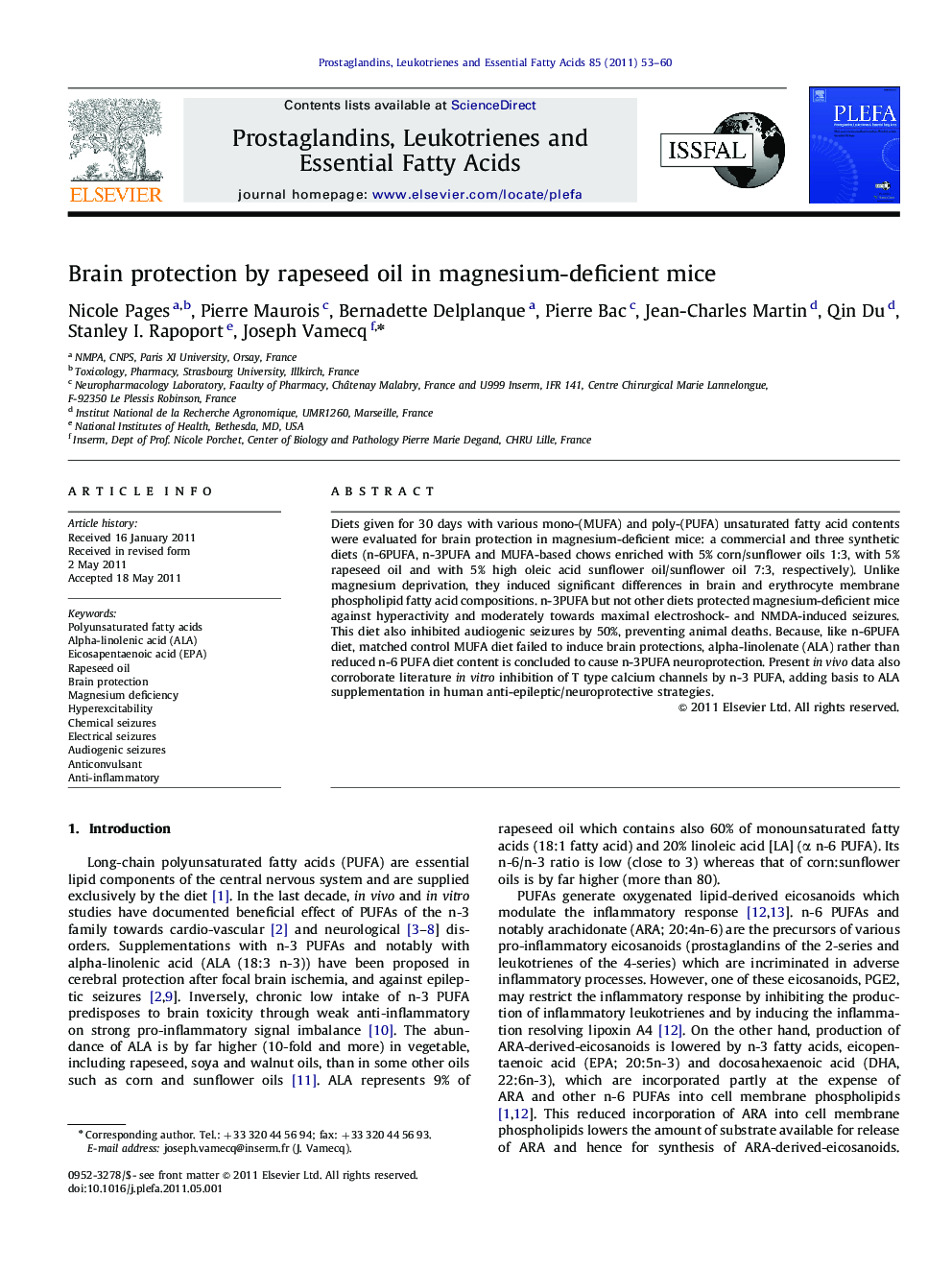| Article ID | Journal | Published Year | Pages | File Type |
|---|---|---|---|---|
| 2777825 | Prostaglandins, Leukotrienes and Essential Fatty Acids (PLEFA) | 2011 | 8 Pages |
Diets given for 30 days with various mono-(MUFA) and poly-(PUFA) unsaturated fatty acid contents were evaluated for brain protection in magnesium-deficient mice: a commercial and three synthetic diets (n-6PUFA, n-3PUFA and MUFA-based chows enriched with 5% corn/sunflower oils 1:3, with 5% rapeseed oil and with 5% high oleic acid sunflower oil/sunflower oil 7:3, respectively). Unlike magnesium deprivation, they induced significant differences in brain and erythrocyte membrane phospholipid fatty acid compositions. n-3PUFA but not other diets protected magnesium-deficient mice against hyperactivity and moderately towards maximal electroshock- and NMDA-induced seizures. This diet also inhibited audiogenic seizures by 50%, preventing animal deaths. Because, like n-6PUFA diet, matched control MUFA diet failed to induce brain protections, alpha-linolenate (ALA) rather than reduced n-6 PUFA diet content is concluded to cause n-3PUFA neuroprotection. Present in vivo data also corroborate literature in vitro inhibition of T type calcium channels by n-3 PUFA, adding basis to ALA supplementation in human anti-epileptic/neuroprotective strategies.
► Magnesium-deficient diet in mice predisposes brain to hyperexcitability and to audiogenic seizures. ► n-3 and n-6 PUFA contents of magnesium-deficient diet differently affect brain excitability. ► Diet n-3 PUFA α-linolenate protects against magnesium deficiency induced brain toxicity. ► Protection by diet α-linolenate (ALA) is associated with rise in brain ALA and EPA (C20:5, n-3) levels. ► Features of α-linolenate protection in audiogenic seizures suggest entremise of T type Ca++ channels.
